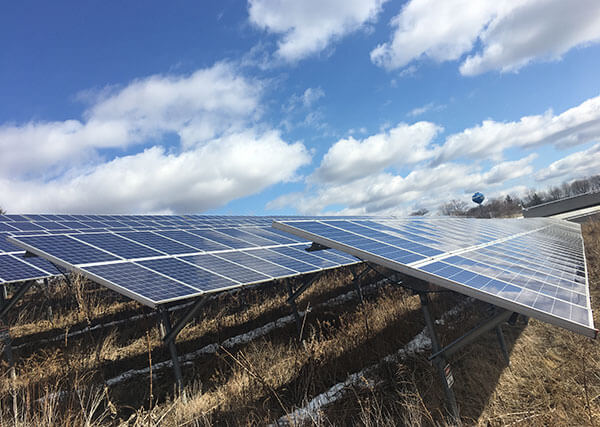Sustainability projects support carbon neutrality efforts

As the University of Michigan works toward carbon neutrality, plans are moving forward for renewable purchased electricity, widespread geo-exchange heating and cooling systems, and innovative financing mechanisms.
These initiatives, among others, are detailed in the inaugural Climate Action at the University of Michigan report, which covers carbon neutrality and sustainability efforts taken during the 2022 fiscal year.
U-M noted a 4% year-over-year reduction in total greenhouse gas emissions — including a 13% year-over-year drop in Scope 2 emissions, which come from purchased electricity. These reductions occurred even as U-M’s return-to-campus efforts prompted a substantial increase in campus activity from the previous year.
Since 2010, the university has reduced its total greenhouse gas emissions by 25%. U-M is on pace to reduce Scope 1 emissions — those from direct sources — and Scope 2 emissions by 50% by 2025, exceeding Intergovernmental Panel on Climate Change guidance to reduce emissions by 45% by 2030.
Accomplishments during the past year in support of climate action include:
-
Fifty energy conservation projects were identified for financing via a shared revolving fund. Projects are estimated to reduce emissions by more than 5,600 metric tons annually, and energy savings will allow the revolving fund to sustain and support additional projects over time.
-
Geo-exchange heating and cooling plans were unveiled, as initial projects in a phased approach toward decarbonizing heating and cooling infrastructure across the university.
-
$300 million in “green bonds” were issued for sustainable capital projects.
-
A request for proposals was issued to procure 100%-renewable purchased electricity by 2025.
-
An initial progress tracking dashboard was published for interested community members to track carbon neutrality progress.
In the year ahead, key priorities include finalizing a renewable-power purchase agreement, initiating on-campus solar energy projects and partnering with like-minded institutions, consortia and community stakeholders.
